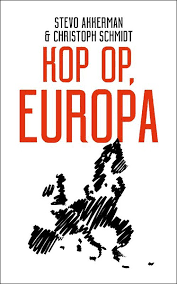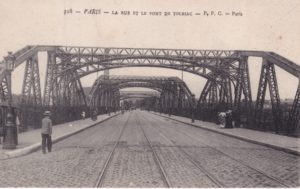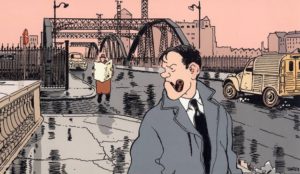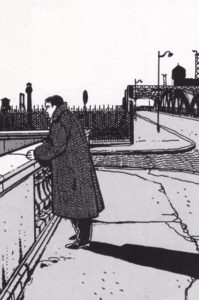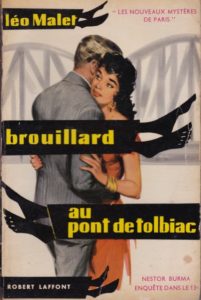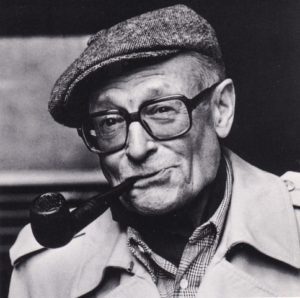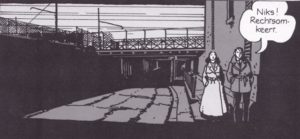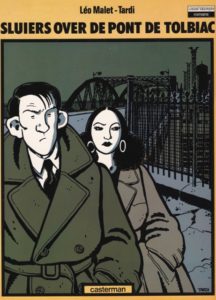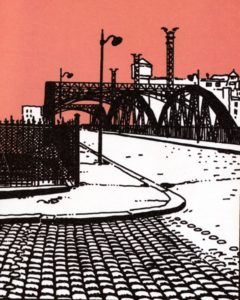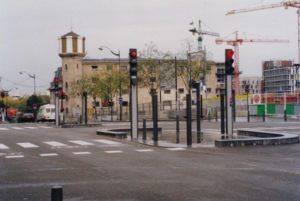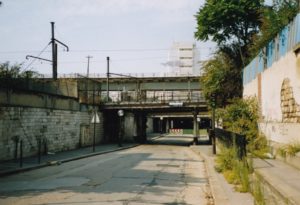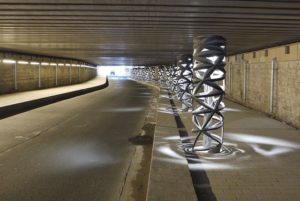The Brexit Nightmare: An Interview With Malcolm Sawyer
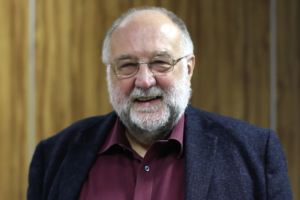 It’s been more than two years since citizens in U.K. voted 48 to 52 for a split from European Union. Yet, the conservative government of Theresa May is still trying to come up with a workable Brexit plan, one that some may describe as allowing the U.K. to have the cake and eat it at the same time. Moreover, public opinion in U.K. remains sharply divided over Brexit, and this includes members of the Labour party itself, with some trade union leaders and Labour representatives even warming up to the idea of a second referendum.
It’s been more than two years since citizens in U.K. voted 48 to 52 for a split from European Union. Yet, the conservative government of Theresa May is still trying to come up with a workable Brexit plan, one that some may describe as allowing the U.K. to have the cake and eat it at the same time. Moreover, public opinion in U.K. remains sharply divided over Brexit, and this includes members of the Labour party itself, with some trade union leaders and Labour representatives even warming up to the idea of a second referendum.
Will Theresa May’s government be able to deliver an agreement before the U.K’s exit date, which is set for March 2019? Will Labour vote down May’s Brexit deal? And what will the British economy look like in the post-Brexit era? The renowned British economist Malcolm Sawyer, Emeritus Professor of Economics at Leeds University, sheds light on the Brexit conundrum in an exclusive interview below with C. J. Polychroniou.
C. J. Polychroniou: Professor Sawyer, let’s begin by asking you the most basic question, which is: what’s really holding up Brexit talks?
Malcolm Sawyer: There are the sheer complexities of unravelling the involvement of the UK in the European Union built up over 45 years, and the need for agreement over issues ranging from EU citizens rights in UK (and vice versa) after Brexit, the financial obligations of the UK on withdrawal, security co-operation, the nature of future trade relations etc.
There are the divisions within the government and the Conservative Party over the issues of the EU and leave or remain. There are basic differences between those who view Brexit in terms of ‘taking back control’ with little regard for economic costs involved and those who were Remainers seeking close trade ties and other co-operation with the EU after exit. It is then very difficult if not impossible to satisfy both and to arrive at any compromise.
Theresa May’s Brexit plans have been facing a lot of opposition from rebels in her own party all along, but now it seems that even the Northern Irish party that is propping up her government is making it difficult for the Prime Minister. Is it possible that U.K. could leave the bloc without any Brexit deal at all?
The process of UK leaving the EU involves two stages – the terms of the Withdrawal Agreement, sometimes seen as akin to a divorce settlement, which has to be settled within 24 months of the start of negotiations under Article 50 of the Treaty of Lisbon which means end of March 2019. The second stage will involve finalizing the future relationships between UK and the EU27 across a wide range of issues though the focus has been on the trade relations (e.g. a free trade area agreement, form of customs union), though it is intended that the broad outlines will be included in the withdrawal agreement. The intention has been for a 21 month transition or implementation period with further negotiations to establish the post-Brexit relationships.
A no-deal situation had been used to refer to no specific trade deal between UK and EU27, with trade between UK and EU27 operating under WTO arrangements with the tariffs charged by UK (EU27) on EU27 (UK) goods the same as charged by UK (EU27) on goods from countries with whom there was no specific trade agreements.
More recently no-deal has come to mean no withdrawal agreement between the EU and the UK, and hence the UK leaving at the end of March 2019 without any agreements over the nature of future relationships. Customs posts and checks would have to be quickly put into operation involving collection of new sets of tariffs and disruption to the just-in-time supply chains across countries, combining to lead to shortages in some key areas (agricultural products, pharmaceuticals often mentioned) and disruption of production.
It is clearly possible that UK to ‘crash out’ of the EU at the end of March 2019. A failure of the UK government to agree the withdrawal agreement with the EU, or a prospective agreement which is then rejected by the UK Parliament, would put the UK firmly on that path, and the chances of one of those coming to past looks to be significant.
Has Labour’s stance on Brexit changed?
There are many currents of opinion within the Labour Party ranging from some Brexit supporters (including some Lexit with opposition to the neo-liberal nature of the EU), through leavers and some remainers who accept the result of the referendum and seek a close and co-operative relationship with the EU and onto remainers who push to reverse the result of the referendum. The position of the Labour Party has been to accept the referendum result and hence support the triggering of Article 50 and the process of leaving the EU – a position from which 47 Labour MPs dissented when the vote was put in Parliament. And six tests on the acceptability of withdrawal and subsequent agreements were set out as early as March 2017 as the triggering of Article 50 took place, though the tests have received rather little political attention until recently. The six tests are:
“1. Does it ensure a strong and collaborative future relationship with the EU?
2. Does it deliver the “exact same benefits” as we currently have as members of the Single Market and Customs Union?
3. Does it ensure the fair management of migration in the interests of the economy and communities?
4. Does it defend rights and protections and prevent a race to the bottom?
5. Does it protect national security and our capacity to tackle cross-border crime?
6. Does it deliver for all regions and nations of the UK?”
From the tests the negotiating stance which the Labour Party would have adopted if it had been in power can be inferred. Question marks hang over those tests including the feasibility of securing the benefits of the Single Market without being members of the Single Market (as in effect Norway and members of the European Economic Area are) which in turn would probably require budgetary contributions and acceptance of free movement of labour.
The stance has had to evolve to take account with the ways in which the negotiations between UK and EU have proceeded and now the prospects of a no-deal or a deal which is unacceptable (particularly with regard to the so-called Chequers proposals) for the relationships between the UK and the EU27 after the UK leaves. The support for a customs union with the EU has become more evident and the opposition to the type of withdrawal agreement which is being advanced by the UK government.
What has been the impact of the Brexit vote on UK’s economy so far?
The impact on economic activity has been negative though not as large as some were predicting before Brexit. The immediate effect was the decline in the exchange rate of sterling which fell immediately after the referendum vote in June 2016 by the order of 12 per cent against the euro and dollar, and the lower exchange rate has been largely maintained. This fall has contributed to some degree to higher inflation and provided some limited stimulus to net export. Before the referendum, some economists were forecasting economic slowdown — even recession of two quarters of negative growth. Although unemployment has continued to decline, UK economic growth has slowed by comparison with the recent record and with growth in the G7, and output looks to be around 1 per cent lower than it would have been without the Brexit vote.
Is there any chance that Brexit will be cancelled?
It is very difficult to envisage the political routes through which the cancellation of Brexit could arise. Cancelling Brexit would require a decision to withdraw the UK’s notice of intention to leave the EU (the Article 50 process), and this would have to occur well before 29th March 2019 (the date set for withdrawal). This would clearly require the reversal of the government and the Labour opposition’s position of accepting the referendum result of June 2016. It looks impossible that such a reversal would happen under the present Conservative government, whether led by May (whose position looks increasingly precarious) or a replacement. And even if it did, the political and social consequences with large protests and civil disobedience do not bear thinking about.
What will be Brexit’s long-run effects on the UKs economy?
There would be many factors will influence the long-run effects (over say one to two decades) on the economy of the UK and its people, though two stand out.
First, the nature of the trading relationship between the UK and the EU 27 (the remaining members of the EU after UK exit)—whether close relationship with the internal market, customs union, free trade area or WTO rules. The macroeconomic modelling of bodies such as Treasury, IMF, OECD have generally argued that there would significant effects on output and incomes, with output being lower than it would have been of the order of up to 5 per cent spread over several years, and depending on the nature of post Brexit trading relationships between EU and UK. However, the work of Gudgin, Coutts, Gibson and Buchanan (2018) put the loss of output as much lower. They find that “in the baseline Brexit scenario …GDP is a little higher up to 2020 as the lower exchange rate and interest rates offset the negative impact of uncertainty. After 2020 the loss of trade results in GDP falling below the pre-referendum trend, ending up in 2025 some 1.2% below the pre-referendum forecast. Part of this reduction in GDP comes from lower migration. As a result, there is less of a fall in per capita GDP which ends up 1.5% lower in 2025 but becomes higher than in the pre-referendum forecast by 2030.” I’m inclined towards those much lower estimates: the establishment of the single market in 1992 with the moves to remove non-tariff barriers for trade between EU member states does not appear to have had a significant boost, and think that reversal of membership of the internal market (which is a key element in UK leaving EU) would likewise have little long-term effect. This is a reflection of what Paul Krugman called ‘economists little secret’ – that while lowering trade barriers bring some gains they are rather small. And in the case of Brexit, the rise in tariffs between UK and the EU would be rather small – from the present zero level to average of 2 to 3 per cent, and there could be some reductions in tariffs depending on trade deals between UK and other non-EU countries. I also take the view that lowering or raising barriers to trade has little long-term effect on employment levels, which depend on the level of aggregate demand. This is not to say that the changes in trade arrangements do not cause disruption with declines in output and employment in some sectors which are potentially offset by rises elsewhere. A ‘botched’ Brexit which does not address the impacts of its uncertainty on investment and which does not ease the adjustment processes would have not only short-term detrimental effects but could set the economy on a negative path.
Second, a great deal depends on the economic and social policies which the UK government pursues in the aftermath of Brexit. The range of policies which have been advocated by the right wing free market Brexiters (notably the European Research Group of some 50 Conservative MPs) would have wide ranging detrimental effects, though the advocates would claim significant benefits from ‘being unshackled from the European Union’. A de-regulation agenda with attacks on workers rights and product standards, and a tax cutting agenda on corporation tax and further shifts to a regressive tax regime would be pursued. Trade policies would be pursued seeking trade deals (notably with the USA) which lowers consumer protection standards and opens up NHS to privatization. The inevitably disruptive effects of changing trade regimes following Brexit would lower output and tax revenues, followed by tax rises to ‘balance the budget’.
In contrast, fiscal and monetary policy could be used to boost demand to offset disruptive effects of Brexit and maintain high levels of employment. The UK government contributed £18.6 billion to the EU budget in 2017 of which nearly £9 billion returns to the UK through agricultural support, regional and structural funds and research support. There would be the opportunity to recast agricultural policies. Regional and structural funds could added to and used more effectively. In the early years following Brexit there would be transitional payments (estimated to be of the order of £38 billion), spread over a number of decades but concentrated in the first years, and there would not be a financial gain to UK budget from Brexit until 2022, but would be thereafter. If the fiscal decision was made, that the equivalent of £9 billion (around ½ per cent of GDP) were now spent domestically rather than ‘sent to Brussels’, there would be a domestic stimulus, which would also mean tax revenues higher and hence overall impact of £9 billion expenditure on budget deficit much smaller than £9 billion. This would also represent a (relatively slight) improvement in the current account deficit. A vigorous agenda to ease the adjustment processes, alongside enhanced regional policies, and policies for industrial support and worker protection would be highly beneficial, though most of those could be implemented within membership of the EU.
Reference
Gudgin, G., Coutts, K., Gibson, N., and Buchanan (2018). “The macro-economic impact of Brexit: using the CBR macro-economic model of the UK economy (UKMOD), Journal of Self-Governance and Management Economics, vol. 6(2), pp. 7-49, doi:10.22381/JSME6220181
C.J. Polychroniou is a political economist/political scientist who has taught and worked in universities and research centers in Europe and the United States. His main research interests are in European economic integration, globalization, the political economy of the United States and the deconstruction of neoliberalism’s politico-economic project. He is a regular contributor to Truthout as well as a member of Truthout’s Public Intellectual Project. He has published several books and his articles have appeared in a variety of journals, magazines, newspapers and popular news websites. Many of his publications have been translated into several foreign languages, including Croatian, French, Greek, Italian, Portuguese, Spanish and Turkish. He is the author of Optimism Over Despair: Noam Chomsky On Capitalism, Empire, and Social Change, an anthology of interviews with Chomsky originally published at Truthout and collected by Haymarket Books.

